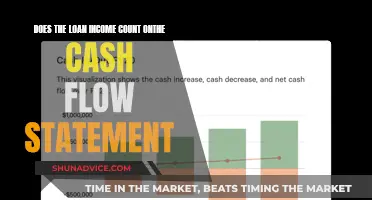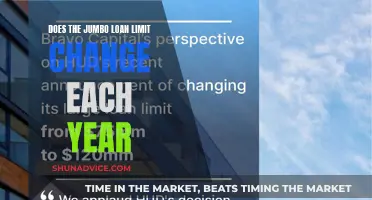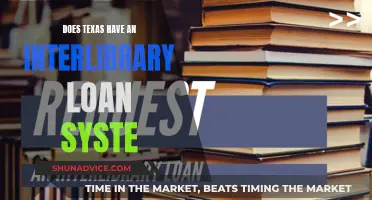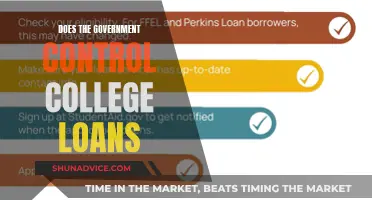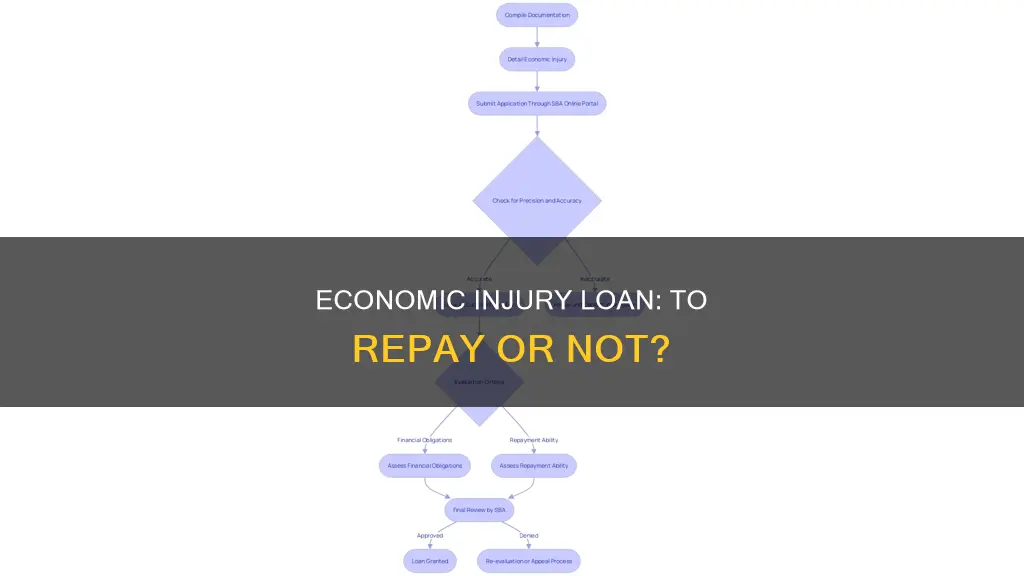
The Economic Injury Disaster Loan (EIDL) program was expanded by the CARES Act to provide relief to small businesses and non-profits impacted by the COVID-19 pandemic. The EIDL program offers loans of up to $2 million with interest rates of 3.75% for small businesses and 2.75% for non-profits. In addition to the EIDL loans, applicants can also receive an advance of up to $10,000 within 3 days of applying, which does not need to be repaid. However, the EIDL loans themselves do need to be repaid.
| Characteristics | Values |
|---|---|
| Loan Amount | Up to $2,000,000 |
| Interest Rate | 3.75% for small businesses, 2.75% for non-profits |
| Repayment Term | Up to 30 years |
| Advance Amount | Up to $10,000 |
| Advance Repayment | Does not need to be repaid |
| Applicant | Small businesses, non-profits, self-employed, independent contractors, sole proprietors, tribal businesses, cooperatives, employee-owned businesses |
| Applicant Location | All U.S. states, Washington D.C., and territories |
| Application | Online |
What You'll Learn
- The Economic Injury Disaster Loan (EIDL) program provides an advance of up to $10,000 within 3 days of the loan application
- The advance does not need to be repaid, even if the loan is denied
- The EIDL loan is available to small businesses and non-profits that have suffered a substantial economic injury due to the COVID-19 pandemic
- The interest rate for the EIDL loan is 3.75% for small businesses and 2.75% for non-profits
- The EIDL loan can be used to pay fixed debts, payroll, accounts payable, and other expenses

The Economic Injury Disaster Loan (EIDL) program provides an advance of up to $10,000 within 3 days of the loan application
The Economic Injury Disaster Loan (EIDL) program was expanded by the Coronavirus Aid, Relief, and Economic Security (CARES) Act in response to the COVID-19 pandemic. The EIDL program provides an advance of up to $10,000 within 3 days of the loan application, even before the loan is approved. This advance does not have to be repaid, even if the loan application is subsequently denied. This advance is designed to provide emergency economic relief to small businesses, non-profits, veterans' organisations, tribal businesses, and self-employed individuals who are currently experiencing a temporary loss of revenue. The advance can be used to cover payroll, provide paid sick leave, meet increased production costs due to supply chain disruptions, or pay business obligations, including debts, rent, and mortgage payments.
The EIDL program offers long-term, low-interest loans of up to $2 million to small businesses and non-profits that are suffering substantial economic injury as a result of a disaster. These loans have fixed interest rates of 3.75% for small businesses and 2.75% for non-profits, with terms of up to 30 years. The funds from the EIDL loan can be used to pay fixed debts, payroll, accounts payable, and other bills that cannot be paid due to the impact of the disaster. It is important to note that the EIDL loan and the advance cannot be used for the same purposes.
To apply for an EIDL loan and the advance, eligible small businesses and non-profits can visit the SBA website or contact the SBA disaster assistance customer service center. The SBA strongly encourages online applications due to the high volume of applications and potential delays and interruptions in service. The estimated time to complete the application is approximately 2 hours and 10 minutes.
It is worth noting that borrowers who receive an EIDL loan and/or an Emergency Economic Injury Grant may also apply for a Paycheck Protection Program (PPP) loan. However, the funds from the PPP loan cannot be used for the same purposes as the EIDL loan and/or advance. If a borrower receives a PPP loan or refinances an EIDL loan into a PPP loan, any advance amount received under the Emergency Economic Injury Grant Program will be subtracted from the amount forgiven in the PPP loan.
Loans: Deferment and Its Impact on Your Finances
You may want to see also

The advance does not need to be repaid, even if the loan is denied
The Economic Injury Disaster Loan (EIDL) program provides an "advance" of up to $10,000 within 3 days of the loan application, even before the loan is approved. This advance does not need to be repaid, even if the loan is subsequently denied. The advance can be used to provide paid sick leave to employees, maintain payroll, meet increased production costs due to supply chain disruptions, or pay business obligations, including debts, rent, and mortgage payments.
The EIDL program offers long-term, low-interest assistance of up to $2 million to small businesses and non-profits that have suffered a "substantial economic injury" due to the COVID-19 pandemic. The interest rate for small businesses is 3.75%, while it is 2.75% for non-profits. The repayment terms can be up to 30 years, determined on a case-by-case basis, based on the borrower's ability to repay.
The EIDL Advance provides emergency economic relief to businesses experiencing a temporary loss of revenue. It is important to note that the advance will not be forgiven if the borrower receives a Paycheck Protection Program (PPP) loan or refinances an EIDL loan into a PPP loan. In such cases, the advance amount received under the EIDL Grant Program will be subtracted from the amount forgiven in the PPP loan.
To apply for an EIDL loan and the advance, small businesses and non-profits can visit the SBA website or contact the SBA disaster assistance customer service center. The application process typically takes around 2 hours and 10 minutes to complete.
Dar Library Interlibrary Loan Services: What You Need to Know
You may want to see also

The EIDL loan is available to small businesses and non-profits that have suffered a substantial economic injury due to the COVID-19 pandemic
The Economic Injury Disaster Loan (EIDL) program was expanded by the Coronavirus Aid, Relief, and Economic Security (CARES) Act to help small businesses and non-profits that have suffered a substantial economic injury due to the COVID-19 pandemic. The EIDL program provides low-interest loans of up to $2 million to qualifying small businesses and non-profits, with terms up to 30 years and fixed interest rates of 3.75% for small businesses and 2.75% for non-profits.
To qualify for an EIDL loan, businesses and non-profits must be located in a declared disaster area and must have suffered a substantial economic injury, meaning they are unable to meet their financial obligations and pay their regular and necessary operating expenses such as rent or payroll. The loan amount is determined based on the financial impact experienced and the company's financial needs, even if no property damage occurred.
In addition to the EIDL loans, the CARES Act also introduced the Emergency Economic Injury Grants, which provide emergency advances of up to $10,000 within three days of applying for an EIDL. These advances do not need to be repaid and can be used to pay employees, cover sick leave, meet production costs, or pay business obligations.
It is important to note that EIDL funds cannot be used for expanding facilities, buying fixed assets, repairing physical damages, refinancing debt, paying dividends or bonuses, or repaying loans to stockholders. The funds are intended to provide working capital and cover normal expenses, such as rent, utilities, and fixed debt payments.
Loans and Unemployment: Impact and Influence Explored
You may want to see also

The interest rate for the EIDL loan is 3.75% for small businesses and 2.75% for non-profits
The Economic Injury Disaster Loan (EIDL) program was expanded by the Coronavirus Aid, Relief, and Economic Security (CARES) Act to help small businesses and non-profits impacted by the COVID-19 pandemic. The interest rate for the EIDL loan is 3.75% for small businesses and 2.75% for non-profits, with a loan term of up to 30 years. These rates are designed to keep payments affordable for small businesses and non-profits, and the SBA offers long repayment terms for this reason.
The EIDL program provides loans of up to $2 million to qualifying small businesses and non-profits to meet financial obligations and operating expenses that would have been covered were it not for the pandemic. The interest rates are fixed, and the first payment is deferred for one year. The loans are available to applicants who are unable to meet their obligations to pay their ordinary and necessary operating expenses, such as rent or payroll.
In addition to the EIDL loans, the CARES Act also introduced Emergency Economic Injury Grants, which are emergency advances of up to $10,000 that can be issued within three days of applying for an EIDL. These grants do not need to be repaid and can be used to pay employees, cover sick leave, meet increased production costs, or pay business obligations.
It is important to note that there are specific regulations on how businesses can use the EIDL proceeds. For example, EIDL proceeds cannot be used to refinance indebtedness incurred prior to the disaster event or to pay dividends to owners, partners, officers, or stockholders.
TaxAct's Refund Anticipation Loans: What You Need to Know
You may want to see also

The EIDL loan can be used to pay fixed debts, payroll, accounts payable, and other expenses
The Economic Injury Disaster Loan (EIDL) program provides loans to small businesses, non-profits, and homeowners to help them recover from declared disasters. The COVID-19 pandemic was classified as a disaster, making many small businesses and non-profits eligible for the EIDL. The loan amount is based on the business's actual economic injury and financial needs. The EIDL can be used to pay for expenses that the business would have otherwise met if the disaster had not occurred.
The interest rates for the EIDL loans are favourable, with small businesses eligible for a 3.75% interest rate and non-profits eligible for a 2.75% interest rate. The repayment terms are also flexible, with the SBA offering loans with long-term repayments of up to 30 years to keep payments affordable. The terms are determined on a case-by-case basis, taking into account each borrower's ability to repay. Up to $200,000 can be approved without a personal guarantee, and borrowers do not have to prove they could not get credit elsewhere.
It is important to note that the EIDL loan has specific requirements and limitations. For example, each COVID-19 disaster loan exceeding $25,000 must be secured by some form of collateral. Additionally, the EIDL loan cannot be used for the same purposes as the Paycheck Protection Program (PPP) loan, and borrowers who receive both loans cannot use the funds for identical purposes.
Devry Lawsuit: Am I Eligible for Loan Discharge?
You may want to see also
Frequently asked questions
Yes, you do have to repay your EIDL. However, you can obtain both an EIDL and a PPP loan, as long as the funds are not used for the same purposes.
The interest rate for small businesses is 3.75%, and 2.75% for non-profits.
EIDLs are loans of up to $2 million.
No, the EIDL Advance does not need to be repaid, even if the grantee is subsequently denied an EIDL.


